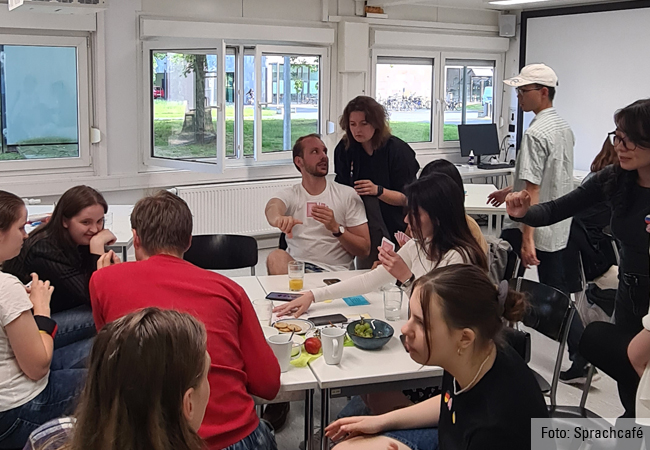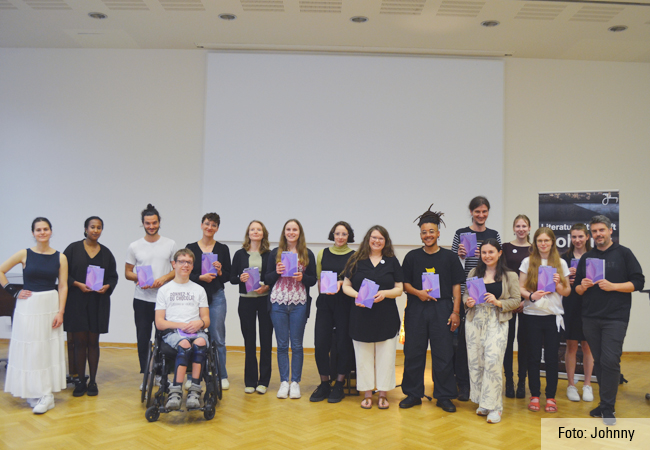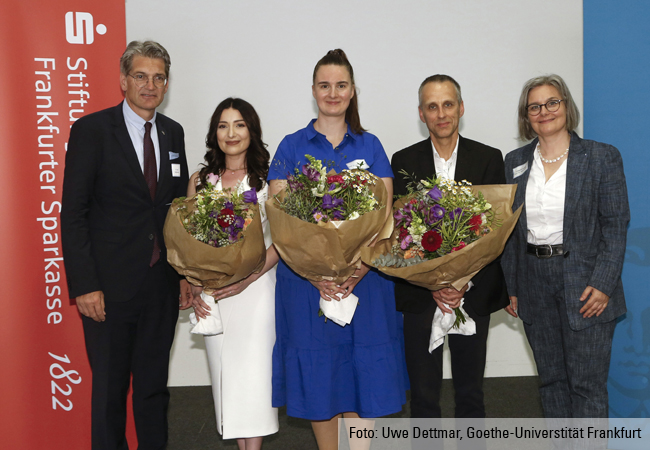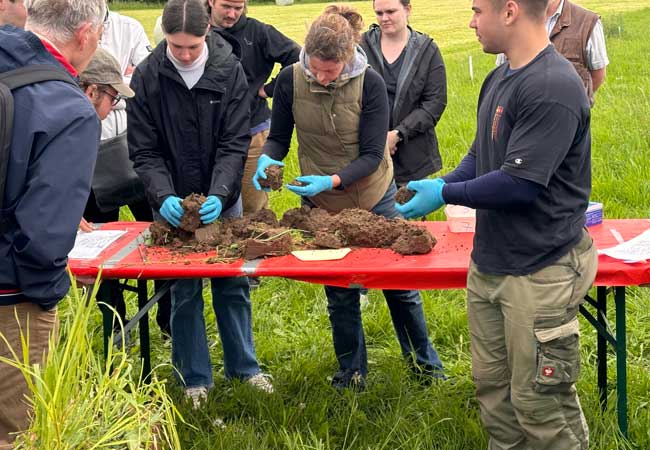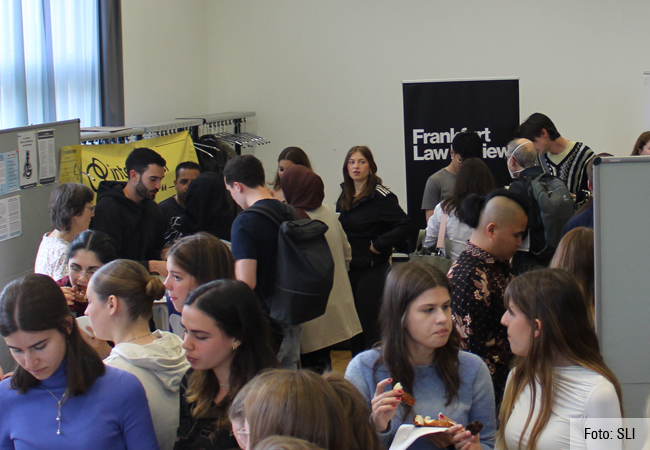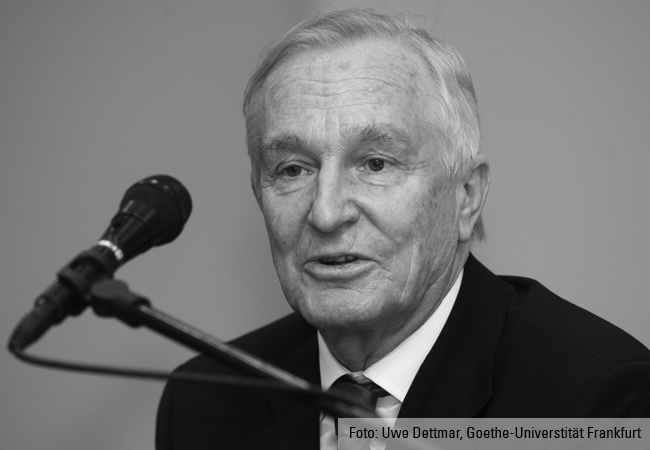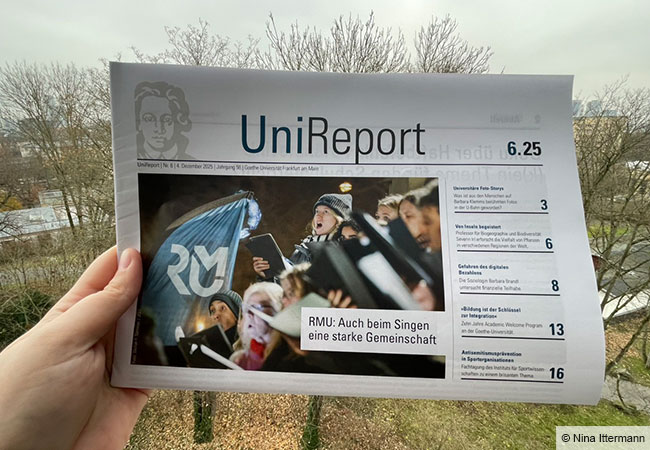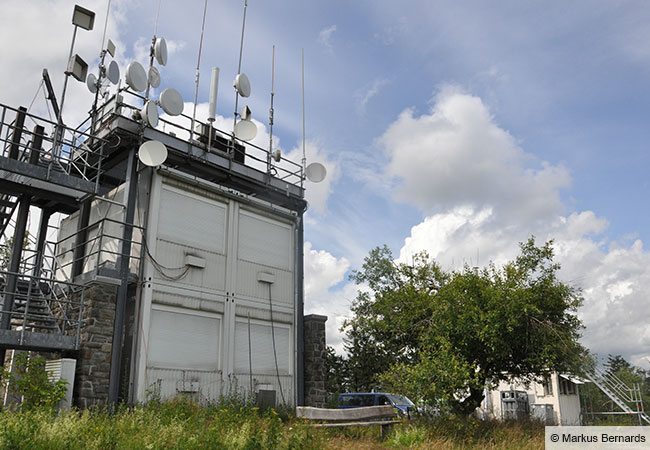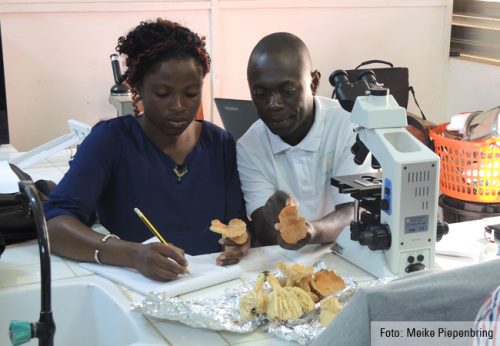
When did you last see any news about Africa in the media? Studies show that reports about Africa have diminished in recent decades. Looking back on his own work, Hans Peter Hahn, Professor at Goethe University Frankfurt’s Institute of Social and Cultural Anthropology, says such general trends constitute a problem for science. When he first visited 40 years ago, he was instantly captivated and decided to spend his professional life investigating the gigantic continent. “I quickly learned that this was a field where, in a sense, you had to take steps backwards. A molecular biologist, for example, moves forward from one new discovery to the next, but in African studies you have to work through thousands of years of knowledge about the continent that borders Europe’s southern edge,” Hahn explains, adding that Europe has learned a lot about Africa since the days of Herodotus, the father of history.
But it never really did anything with this knowledge, he says. On the contrary: In the 21st century, Hahn points out, the public in Europe actually appeared to be opposed to knowing or being told anything about the African continent, which – so it was said – should look after itself. In this context, Hahn is extremely critical of the media’s reporting practices, explaining that the number of correspondents reporting while on location in Africa has fallen over recent decades, leading to a decline in the intensity and care with which knowledge about the continent and its countries is compiled and presented. With tangible consequences: “I have been asked more than once whether I speak African. Of course I don’t – we are after all talking about a continent with some 2,000 languages, 54 countries and just as many capital cities,” Hahn says.
That is one of the reasons why Hans Peter Hahn and his colleagues in African Studies initiated an “action month” on Africa – including a traveling exhibition entitled “Forgotten Worlds and Blind Spots. The media’s neglect of the Global South”, which was curated by Ladislaus Ludescher, research assistant at the Institute of German Literature and its Didactics. The exhibition exposed marked distortions and one-sided reporting in Western media, where news about European and North American topics dominate, while the Global South hardly exists anymore. If Africa does make it into the news, it is mostly in stories about disasters and wars. “Of course that’s only a symptom of a broad range of causes, one of them being that news from Africa is simply very expensive to come by. Sending a journalist to a country like Nigeria incurs higher travel, accommodation, and not least security costs than would be needed for a comparable research trip to the American Midwest.”
Another and probably more significant reason, Hahn says, is the way in which Africa is thought of as a place of permanent disappointments – it never was nor became that which Europe thought it was, he adds. A continent that had been easily colonized suddenly brought forth independence movements. In the West’s view, Africa was supposed to develop economically, but the factories once built were not used; they decayed, and no one took care of them. Instead of new democracies developing, for years, one coup has followed another. Amid this monotonous cycle of expectation and disappointment, insufficient attention is being paid to other details, Hahn says, including, for example, the fact that while there have been civil wars since the founding of the Organization of African Unity, there have not been any major wars between states. “As an Africa expert, as soon as you want to commend this continent for something, you come up against a kind of resistance.” Beyond calling on us to change and broaden the way we regard our neighboring continent, Hahn asks that we also reflect on the supposed otherness in an effort to make way for a different idea: that Africa has always been a part of Europe. He recalls a scientific conference held at the Herzog August Bibliothek Wolfenbüttel independent research institute for European cultural history, at which, much to Hahn’s surprise, hardly any mention was made of Anton Wilhelm Amo – the first African philosopher, originally from Ghana, to conduct research and teach at locations in Germany in the 18th century. However, in Wolfenbüttel – the place where he received his education – interest in this fascinating biography remains meagre.
The Centre for Interdisciplinary African Studies (ZIAF) at Goethe University Frankfurt, Hahn explains with a certain amount of pride, was recently evaluated, and received positive scores for its acquisition of external funding, the range of research topics, and the number of its partnerships. That being said, the appraisal also found that ZIAF’s work at Goethe University should be publicized more. This was the reason for launching the action month “Image of Africa in the German media and the role of academia,” which opened in July. Hahn hopes the initiative will yield a greater response and more notice – not just from interested researchers, but the entire university. “Africa plays a major role, also in subjects where you maybe would not expect it at first glance.” Far from being confined to the academic realm, the program’s events also explicitly address the interested public. “Many people may be interested to learn that Africa is currently witnessing a real boom in German Studies. If Nietzsche suddenly starts being taught at a university in Côte d’Ivoire, this opens up completely new, fruitful perspectives for the humanities – both here and there.”
“IMAGE OF AfriCa in THE GERMAN MediA And THe Role OF ACADEMIA” ACtion montH
Throughout July 2024, the Centre for Interdisciplinary African Studies (ZIAF) organized various formats examining the image of Africa presented by the media in Germany. The program began with a traveling exhibition entitled “Forgotten Worlds and Blind Spots. The media’s neglect of the Global South” [“Vergessene Welten und blinde Flecken. Die mediale Vernachlässigung des Globalen Südens”], on display from July 2 to 22, 2024, in the foyer of the IG Farben Building on Goethe University Frankfurt’s Westend Campus.
The exhibition presented the main results of a long-term study on the reporting in various key media. It included the evaluation of over 5,500 “Tagesschau” TV news bulletins from the years 1996 and 2007 to 2021. The data clearly show that the distribution of the reports has a strong geographical bias. While the Global North receives a disproportionately high level of attention, numerous states in the Global South are marginalized or, in some cases, simply ignored. The exhibition panels and the study itself (in German) is accessible and can be downloaded at the following website free of charge: www.ivr-heidelberg.de.
In addition, a Young Scholars’ Conference on “Africa researchers in the German-speaking area and knowledge of Africa” [“Afrika-Wissenschaftler*innen im deutsch-sprachigen Raum und Afrika-Wissen”] was held onWestend Campus from July 18 to 19, 2024. The event was organized by Sylvestre Kouakou (a doctoral student at the Institute of Social and Cultural Anthropology) in cooperation with GRADE – the (Post) Graduate Academy of Goethe University, and ZIAF, with funding from the latter as well as the association of friends and supporters of Goethe University. The conference addressed topics such as the sources of knowledge about Africa in German-speaking countries and the role of social media and journalists, but also ways of communicating knowledge about Africa both in school lessons and ultimately also in university research into Africa. What are Africa researchers doing to minimize the stereotypes of African countries in the German-speaking world?
A public panel discussion held on July 18, 2024 pursued this question further. The ZIAF Public Dialogue “Research and the public image of Africa in Germany. What options exist for exerting influence?” [“Wissenschaft und das Afrikabild in der deutschen Öffentlichkeit. Welche Möglichkeiten der Beeinflussung?”] examined the options available for counteracting the ever-dwindling public interest in information about Africa and the frequently stereotypical overemphasis on crises, wars and disasters. Can academic insights into Africa influence reporting in a positive manner to revive interest in Africa? What instruments and formats exist beyond a purely university setting for improving the public perception of this continent? Can researchers make contributions of their own, outside classical journalistic media work?
The panel consisted of Prof. Friederike Lüpke, professor of Africa studies at the University of Helsinki and professorial research associate at the School of Oriental and African Studies (SOAS), University of London, and Dr. Kokou Azamede, lecturer in the Department of German Studies/Cultural Studies at the University of Lomé. The evening was hosted by ZIAF managing director Prof. Hans Peter Hahn.
Contact:
Dr. Stefan Schmid, ZIAF Coordinator
s.schmid@em.uni-frankfurt.de
Tel.: +49 (0)69 798-32097
Prof. Hans Peter Hahn
ZIAF Managing Director
hans.hahn@em.uni-frankfurt.de
Tel.: +49 (0)69 798-32072


